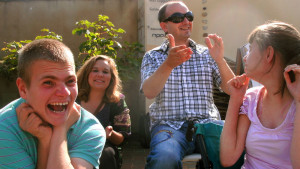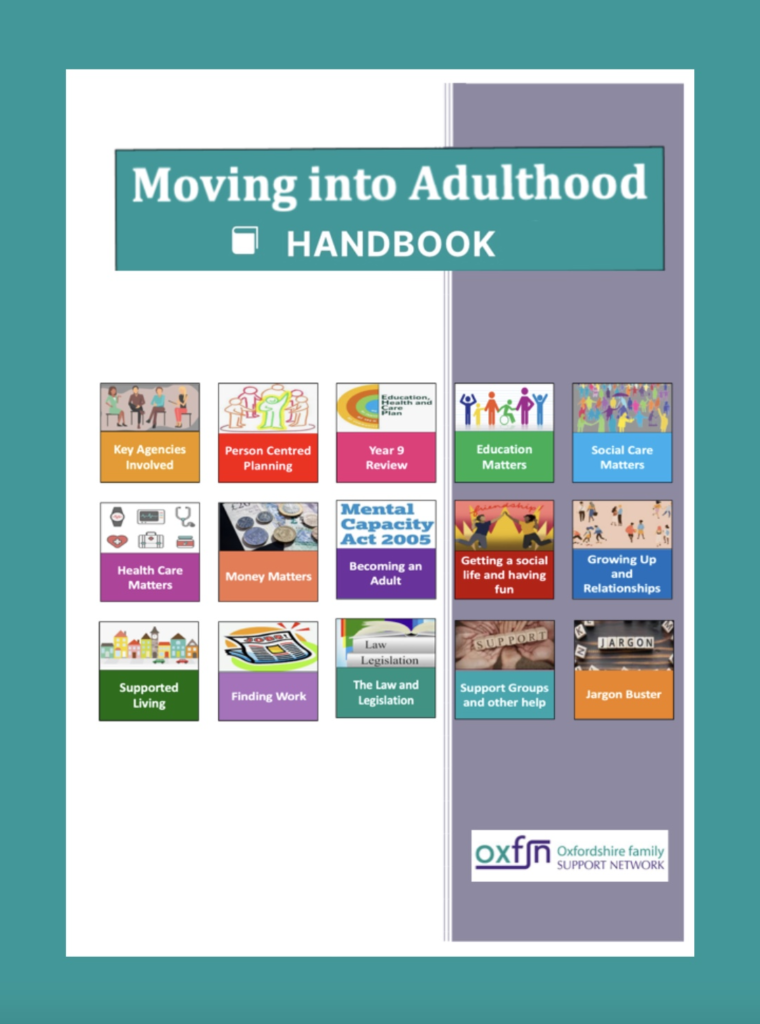Handbook for family carers of young people

Leaving school or college and becoming an adult is an exciting time for most young people, but for young people with learning disabilities and their families it can be a time of uncertainty and anxiety. This stage which starts around 14 years of age, is often referred to by services as ‘transition’
Disabled children and their families are dependent on many different services and agencies for support. We often have to think ahead and plan for the future in a way that other families don’t have to.
As families we are often unclear about what happens in this stage of our children’s life – who should be doing what and when and what is our role in the process. We can worry about what choices will be available in education, training, work and housing and what support will our children have when they become an adult. The whole process can seem complex and overwhelming at times, with new jargon to understand and new systems to navigate.
The Moving into Adulthood Handbook is written by and for families of young people with learning disabilities. However, some of the information in them may be helpful for families with adults moving out of their family home.
For more information and to download a specific chapter from the handbook please visit our dedicated webpage by clicking on the following image:


